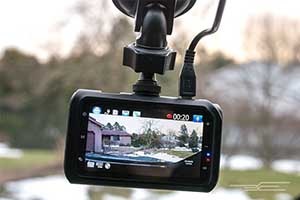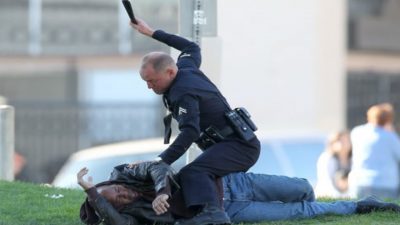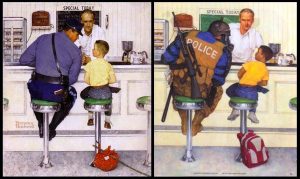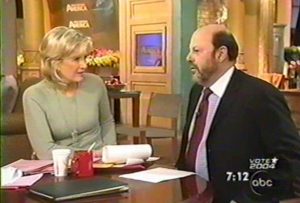Why The Cops Get Away With It; The Jury System
WHY THE COPS CAN USUALLY GET AWAY WITH IT; THE JURORS
To attack the jury system is to attack an institution that has been the primary barrier between oppression and freedom in the English speaking world since 1215 (the issuance of the Magna Carta.) This is not an attack on the jury system. It is merely a reflection as to why in false arrest, unreasonable force and malicious prosecution cases, the way that a jury decides these type of cases is as much political, as it is an exercise in fact finding. The persons who ultimately get to sit on juries in these cases, have no real idea as to how police officers actually act, and have no idea how truly institutionally corrupt, police agencies really are when it comes to defending the County / City coffers and their and the politicians’ images. Many of them have an emotional predisposition to believe the police; no matter how many obvious falsehoods they may utter. They consider themselves “Pro-Police”, and often feel that the cops are getting a raw deal in the media, and need their support. With these kind of white / upper-middle class types, if a cop testifies under oath with a straight face, that’s it. You’re goose is cooked. Guilty.
You’ve really got to prove that you’re innocent in these type of cases. Try convincing a Newport Beach Superior Court white affluent jury that you didn’t act rudely toward a peace officer (police reports very often falsely state that the victim of the police abuse used explicatives), or didn’t somehow delay or obstruct the officer’s investigation of you (whatever that really means), by exercising your right to not speak with the officer, is like convincing Billy Graham that there is no God. The “harmony” of all of this, is that since Section 148(a)(1) of the Penal Code (resisting / obstructing / delaying a peace officer in the lawful performance of their duties) doesn’t actually mean anything, and is so vague and amorphous, that a jury can make it fit their enmity for the accused; enmity created by the mere fact that you stand accused at all.
In both civil and criminal cases, the parties have some say in the composition of the jury. The jury pool members are supposedly called randomly, and the Court and the lawyers get to ask them questions. That part of a trial, questioning potential jurors, is called voir dire, that in French means, to speak the truth. Each side gets a certain numbers of peremptory challenges, that they can use to strike persons from sitting as jurors. In a federal court civil rights case, each side usually gets four peremptory challenges. So far, sounds fair. Here’s the rub.
Most people who have actually seen police officers beat-up a civilian have a lasting terrible feeling about police misconduct. Almost invariably, when they are asked by the lawyers or the Court about whether their prior experience with police misconduct will cause them to be prejudice against either side, they almost always say “Yes.” Most such people who have seen police beatings and the false prosecutions of their friends, are so deeply affected, that they invariably tell the Court that they are biased against police officers (in this type of case), and that they can’t really put-aside that bias and be completely fair and impartial. Once they make that statement, any such jurors are then routinely excused for cause from sitting on that jury. Thus, the jurors who would more likely be favorable to the civil rights plaintiff (or criminal defendant accused of some crime against a peace officer), is excused for cause from sitting on the jury. The lawyer defending the case for the police doesn’t even have to use one of their jury peremptory challenges to get rid of that juror. All of the others jurors who do get to sit, are people who have never seen police misconduct; leaving a jury that, unfortunately, have no concept of the way that police, and police organizations, actually act.\
Therefore, when Miss, Mrs. or Mr. Citizen gets falsely arrested, beaten-up or maliciously prosecuted by police agencies, and gets criminally prosecuted for conduct that often isn’t criminal (i.e. “creative use” of the California criminal statute Penal Code Section 148(a)(1)), these “sanitized jurors” will generally not believe that the police really did what Miss, Mrs. or Mr. Citizen claim that they did, unless Miss, Mrs. or Mr. Citizen’s attorney can really prove otherwise; real proof; like a video, audio, or a bus load of highly observant nuns with photographic memories who testified about clearly indefensible police conduct.
That’s why the jury system rigged against persons victimized by the police; because the only people who ever get to sit in judgment in these type of cases as jurors, are persons who have never had a bad experience with a police officer, or and who has not seen outrageous police conduct. Their life experience tells them something that’s just not true; that police officer don’t beat people up unless they did something to deserve it. You, therefore, need great proof to dispel that belief by jurors
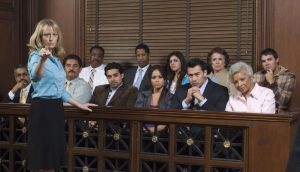
WHY THE POLICE CAN GET AWAY WITH IT; CONTEMPT OF COP ARRESTS.
“Contempt Of Cop” cases, are bogus criminal actions, brought against innocents by criminal prosecutors, for essentially, “bruised ego” violations. The “ego bruising”, is really nothing more than a civilian not immediately, and without protest or question, getting-down on the ground in a proned position, or not doing something that the officer wants you to do (lawful, reasonable or not) immediately, and without question or protest. Something that we all have the Constitutional right to do. Houston v. Hill, 482 U.S. 451 (1987.)
In Houston v. Hill, the incident that sparked this lawsuit occurred in the Montrose area of Houston on February 14, 1982. Raymond Hill observed a friend, Charles Hill (no relation), intentionally stopping traffic on a busy street, evidently to enable a vehicle to enter traffic. Two Houston police officers, one of whom was named Kelley, approached Charles Hill, and began speaking with him.
According to the District Court, “shortly thereafter” Hill began shouting at the officers “in an admitted attempt to divert Kelley’s attention from Charles Hill.” Raymond Hill first shouted: “Why don’t you pick on somebody your own size?” After Officer Kelley responded: “[A]re you interrupting me in my official capacity as a Houston police officer?” Hill then shouted: “Yes, why don’t you pick on somebody my size?” Hill was arrested for violation of Houston Code of Ordinances, 34-11(a), for “wilfully or intentionally interrupt[ing] a city policeman . . . by verbal challenge during an investigation”; a statute very similar to the Cal. Penal Code § 148(a)(1) (resisting / obstructing / delaying peace officer [commonly called “resisting arrest”].) Charles Hill was not arrested. Raymond Hill was then acquitted after a nonjury trial in Municipal Court.
Code of Ordinances, City of Houston,Texas, 34-11(a) (1984), reads:
“Sec. 34-11. Assaulting or interfering with policemen.
“(a) It shall be unlawful for any person to assault, strike or in any manner oppose, molest, abuse or interrupt any policeman in the execution of his duty, or any person summoned to aid in making an arrest.” 3
Following his acquittal in the Charles Hill incident, Raymond Hill brought the suit in the Federal District Court for the Southern District of Texas, seeking (1) a declaratory judgment that Section 34-11(a) was unconstitutional both on its face and as it had been applied to him, (2) a permanent injunction against any attempt to enforce the ordinance, (3) an order expunging the records of his arrests under the ordinance, and (4) damages and attorney’s fees under 42 U.S.C. § 1983 and 1988.
In striking-down the Houston City ordinance the United States Supreme Court held that ordinance the Houston ordinance was unconstitutionally overbroad, because it criminalized conduct that is protected by the First Amendment to the United States Constitution; the right to protest and challenge police action:
“The Houston ordinance is much more sweeping than the municipal ordinance struck down in Lewis. It is not limited to fighting words nor even to obscene or opprobrious language, but prohibits speech that “in any manner . . . interrupt[s]” an officer. 10 The Constitution does not allow such speech to be made a crime. 11 The freedom of individuals verbally [482 U.S. 451, 463] to oppose or challenge police action without thereby risking arrest is one of the principal characteristics by which we distinguish a free nation from a police state. 12“ (Brennan, J.)
The Constable‘s “ego” is typically “bruised”, by your conduct, such as: 1) asserting your Constitutional rights, or 2) claiming knowledge of them, or 3) asking the Constable why you’re being ordered to lie down on the ground while your chest is being illuminated by the red spot of a pistol or rifle targeting device; 4) telling the Constable that you have a medical condition that makes it difficult or painful to get on the ground; 5) telling the Constable that he can’t do something (i.e. can’t go in my house without a warrant; you can’t make me go inside or come outside); 6) failing to consent to a warrantess entry or a search; and 7) not exiting your house when ordered to do so (even though the police generally can’t order you to exit a private residence; save probable cause to arrest for serious dangerous felony, coupled with an emergency; See, United States v. Al-Azzawy, 784 F.2d 890 (9th Cir. 1985) and Elder v. Holloway, 510 U.S. 510 (1994.) These are but a few examples. The list is endless, but the theme is the same. Failing to immediately do whatever the police tell you to do, without protest, challenge or remarks, often will result in your being beaten-up, falsely arrested, and maliciously criminally prosecuted.
These, “Contempt Of Cop” cases typically involve the police using force upon persons (i.e. beating them) and/or falsely arresting them, and then inventing bogus allegations of violations various “Contempt Of Cop” statutes, such as violations of: 1) Cal. Penal Code 148(a)(1) (resisting / obstructing / delaying peace officer [commonly called “resisting arrest”]; the most abused statute in the Penal Code; 2) Cal. Penal Code 240/241(b) (assault on a peace officer); 3) Cal. Penal Code § 242 / 243(b) (battery on a peace officer); and 4) Cal. Penal Code § 69 (interfering with public officer via actual or threatened use of force or violence.) Cal. Penal Code § 69 is a “wobbler”; a California public offense that may be filed by the District Attorney’s Office as either a felony or a misdemeanor. In Southern California allegations of violation of Penal Code § 69 are usually filed as misdemeanors. In San Bernardino County, however, allegations of violation of Cal. Penal Code § 69 are filed as felonies much more often than her sister counties. If they shoot you, they may even charge you with Cal. Penal Code §245(d); assault on a peace officer in a manner likely to result in great bodily injury.
Don’t let the cops get away with it again. Fight for your honor, your dignity and for your Country. Although the average juror is susceptible to believe the police version of the events, they can be convinced otherwise; that is, unless you’re a convicted child molester (and then they don’t care.)
Law Offices of Jerry L. Steering
Jerry L. Steering, Esq.
Published: 2/5/19


